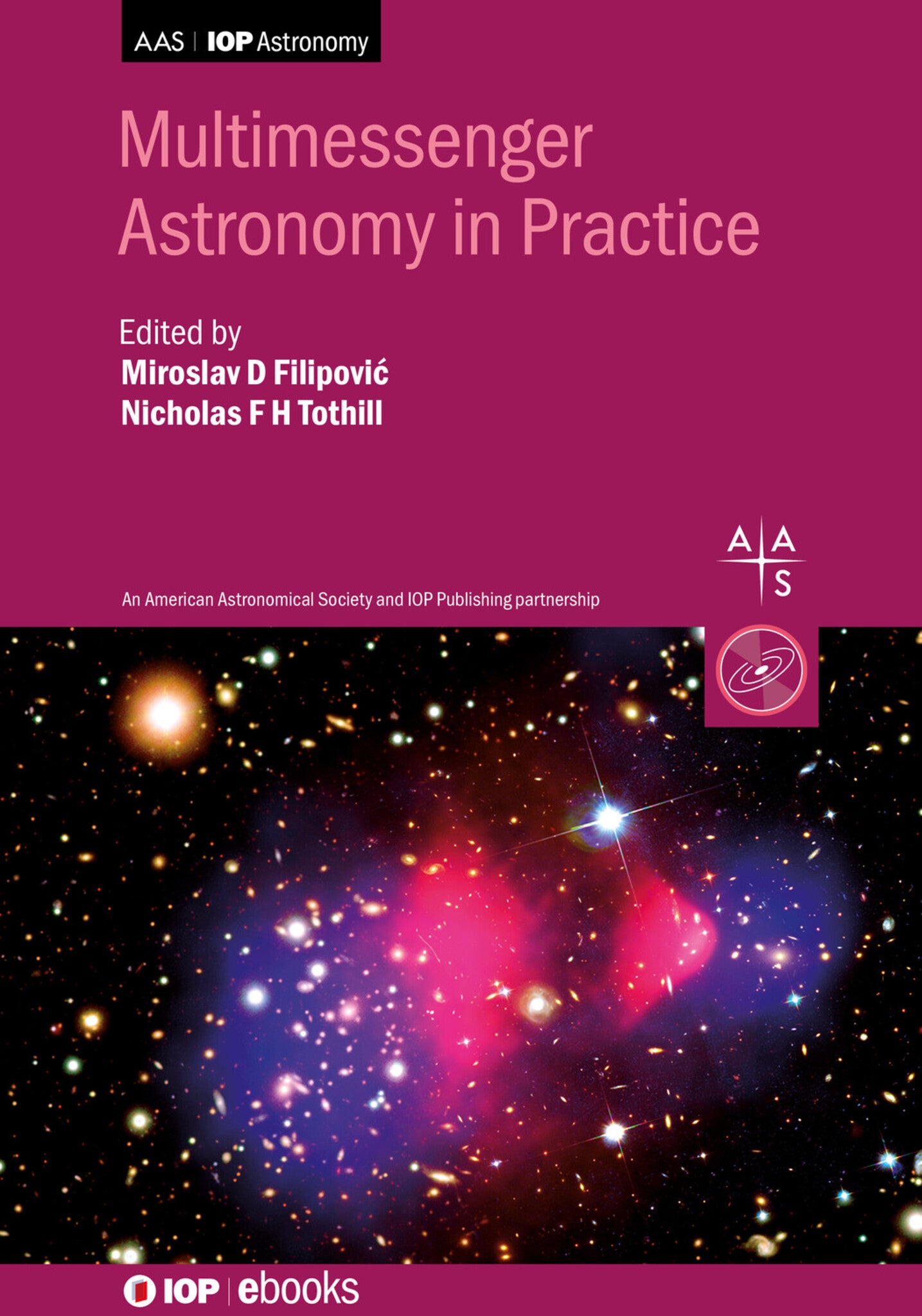We're sorry. An error has occurred
Please cancel or retry.
Multimessenger Astronomy in Practice

Some error occured while loading the Quick View. Please close the Quick View and try reloading the page.
Couldn't load pickup availability
- Format:
-
30 December 2021

The first non-electromagnetic messengers from space were discovered in the early 20th century, but it is only now that multimessenger astronomy is coming into its own. The aim of Multimessenger Astronomy in Practice is to aid an astronomer who is new to research in a particular area of multimessenger astronomy. Covering electromatic radiation from radio through to gamma-rays, and moving on to neutrino, cosmic-ray and gravitational wave astronomy, it gives the reader an overview of the celestial objects detected in each region, the unique methods used to measure them, as well as the principles and methods of data collection, calibration, reduction and analysis. Further chapters cover dark matter, the multimessenger search for extraterrestrial intelligence (SETI), and data science with machine learning. The book will help educate astronomy students taking a multimessenger approach, and add to the knowledge of professional astronomers about what is available in today’s multimessenger toolbox.
Key Features
- Prepares astronomers new to research in a particular area of multimessenger astronomy
- Covers modern astrophysics across the electromatic spectrum from radio through to gamma-rays, as well as neutrino, cosmic-ray and gravitational wave astronomy
- Details the celestial objects detected in each region, the detection methods used, and the principles and methods of data collection, calibration, reduction and analysis
- Includes chapters on dark matter, the multimessenger search for extraterrestrial intelligence (SETI), and data science with machine learning

SCIENCE / Space Science / Astronomy, Astronomical observation: observatories, equipment and methods

The second book, entitled Multimessenger Astronomy in Practice, is a comprehensive textbook which covers all of the individual divisions of astronomy outlined in the first book, plus a couple of extra sections. It has an unusual format, in that most of the chapters are multiauthored, and the total number of authors contributing to the book is 16. This is not entirely surprising, given the scope of the material and the effort required to explain the wide range of subject matter, but it does give the volume an aspect of a conference proceedings, or perhaps a set of review articles. I would see this volume as a handbook for a new graduate student preparing to carry out research in astronomy. Each chapter has an extended list of references to published papers which make sense in that context.
John Beckman, The Observatory, February 2023
Preface
Foreword
Acknowledgements
Editor Biographies
Author Biographies
Contributors
1 Multimessenger Astronomy in Practice: Celestial Sources in Action
2 Long-wave (Radio) Astronomy with Coherent Detection from Radio to THz
3 Long-wave Astronomy with Incoherent Detection
4 Visual and Near-infrared Astronomy
5 Ultraviolet Astronomy
6 X-Ray Astronomy
7 Gamma-Ray Astronomy
8 Neutrino Astronomy
9 Gravitational Wave Astronomy
10 Dark Matter
11 Multimessenger SETI and Techniques
12 Data Science (Mining and Processing) with Machine Learning in the Era of Multimessenger Astronomy



